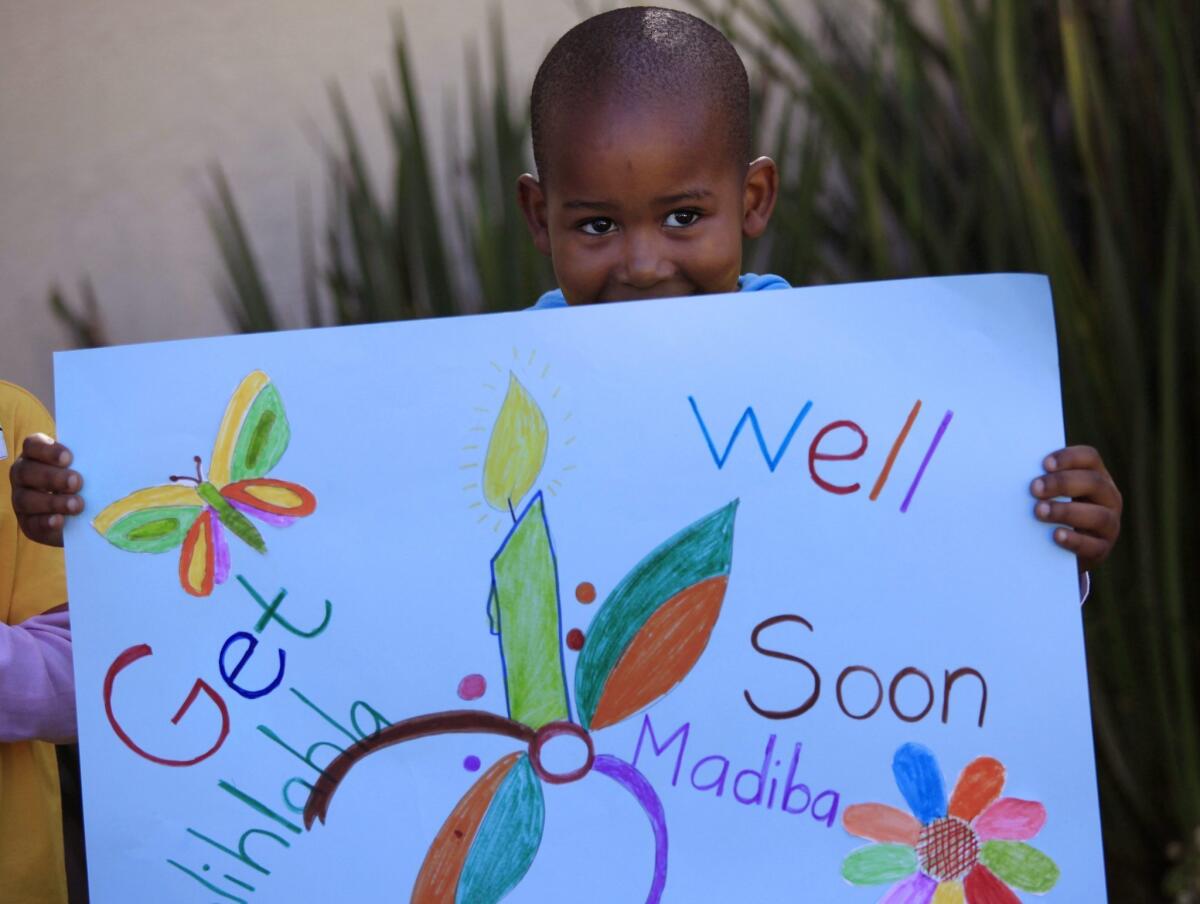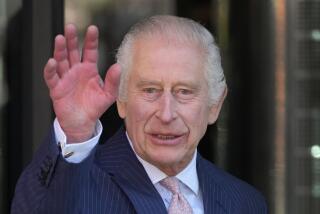Nelson Mandela âresponding betterâ to treatment, Zuma says

JOHANNESBURG, South Africa -- After days of somber news, as South Africaâs former leader Nelson Mandela clung to life in intensive care, a sliver of hope emerged Wednesday: He was responding better to treatment for a lung infection, President Jacob Zuma told Parliament Wednesday.
Earlier in the day, Zumaâs spokesman, Mac Maharaj, had told a radio interviewer that Mandelaâs health was unchanged, and that he remained in serious but stable condition in a Pretoria hospital.
Mandela fell ill last week and was rushed to the hospital early Saturday after his condition deteriorated sharply.
âI am happy to report that Madiba is responding better to treatment from this morning,â Zuma said, using Mandelaâs clan name in a speech before a vote on the budget. âWe are very happy with the progress that he is now making, following a difficult last few days.â
Zuma urged people around the world to keep Mandela and his medical team in their thoughts and prayers.
âWe appreciate the messages of support from all over the world,â he said. âIt is an honor for us as South Africans to share Madiba with the international community. We fully understand and appreciate the global interest in this world icon. We are so proud to call him our own.â
Members of Mandelaâs family again visited the elder statesman in the hospital Wednesday. His grandson, Mandla Mandela, issued a statement on behalf of the family, saying they were âdeeply touchedâ by the outpouring of prayers and goodwill messages.
âThe family is satisfied with the care that Madiba is receiving and share the hope of everyone for Madibaâs recovery,â he said. âWe are fully cognizant of the fact that millions of people in the country and around the world regard Madiba as their parent and therefore are as much concerned about his well-being as we are.â
During the 27 years he spent in prison under the countryâs former white-minority government, Mandela contracted tuberculosis, leaving his lungs damaged. As a result, he has struggled with repeated lung infections in recent years.
Mandelaâs illnesses -- with four hospitalizations since December -- and the change in tone from officials, who have been describing his condition as âvery serious,â has seen South Africans confront the reality of their beloved heroâs mortality as never before.
One African National Congress official said on Saturday that the ruling party was prepared for the worst. An old friend who spent time in jail with Mandela under apartheid told a newspaper that it was time for South Africa to let him go. Residents of Mandelaâs home village, Qunu, in the Eastern Cape province, told journalists they did not expect to see him before his funeral.
Mkhuseli Gqabantshi, 74, said Mandela was viewed in the village like Jesus, sacrificing himself for his people.
âWeâll never see him again now, I donât think so, really,â he told Agence France-Presse.
Although Mandela has played no active role in public life for nearly a decade and has no influence on ruling-party decisions, he remains an enormously important symbol to South Africans, many of whom still find the idea of life without him unthinkable, if inevitable.
âWe need him,â Andiswa Msongelwa, 32, a distant relative of Mandela, told AFP.
Zuma told parliament that Mandela and other heroes of the anti-apartheid struggle had changed the lives of millions of South Africans. Mandela was elected the countryâs first black president in 1994.
âBecause of their sacrifices and the foundation that was laid for a free and democratic South Africa, our country is a much better place to live in now than it was before 1994, even though we still have so much work to do,â Zuma said.
ALSO:
Greek public broadcaster defies order to shut down
Times reporter Patrick J. McDonnell on his trip to Syria
Istanbulâs Taksim Square quiet after chaotic, violent night
More to Read
Sign up for Essential California
The most important California stories and recommendations in your inbox every morning.
You may occasionally receive promotional content from the Los Angeles Times.










